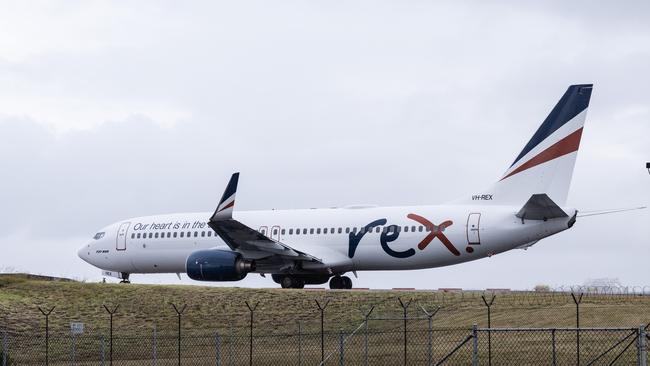Australian insolvencies roar to worst September quarter on record as pressures hit businesses
Businesses are going bust at a faster rate than at any other time in the nation’s history, as the combination of rising costs and an economic slowdown push small firms over the edge.
Corporate insolvencies are at fresh highs after the worst start to any financial year on record as a deterioration in the economy coupled with a crackdown on unpaid tax by the Australian Taxation Office forces the closure of more businesses.
Recent months have seen a tripling in debt recovery action undertaken by the ATO as it pursues unprofitable small businesses given reprieve during the pandemic years and are unable to pay tax bills. Industry watchers say there is grave concern for the hospitality sector, which is ground zero for fallout from the cost-of-living crisis.
Figures from the Australian Securities & Investments Commission show there were 3631 insolvency appointments in the September quarter, a 45.5 per cent increase from the same period in 2023, and 10 per cent more than the June period.

This September quarter had the highest rate of external administration and controller appointments since ASIC records began in the late 1990s, surpassing the previous high in 2012 when 2961 businesses went under following the global financial crisis.
Rex was the biggest casualty after the airline entered voluntary administration in July, owing $500m, and subsequently culled its Boeing 737 fleet. Administrator EY has yet to find a buyer.
EY strategy and transaction partner Morgan Kelly said businesses were squeezed by softening revenue as a result of the cost of living, higher input costs and increasing interest rates lifting debt repayments.
“This is constraining profitability and creating a problem with servicing debt,” he said. “The reality is catching up to some of those business models that were calibrated to low interest rates and are now having trouble pivoting or repositioning fast enough to be able to manage the changing cost environment.”

Between May and September, the number of businesses with outstanding tax debts of more than $100,000 was approaching 29,000, according to the ATO. For the 2024 financial year, the ATO took 80,050 strong recovery measures compared to 25,744 in 2023. A director penalty notice allows the ATO to recover the company’s unpaid amounts.
Business Reset restructuring practitioner Jarvis Archer said businesses were being impacted by the perfect storm of the ATO ramping up debt recovery and poor economic conditions.
“As a result of the poor trading conditions for small business, the proportion of small business ATO debt is continuing to grow. Small businesses owed $35.2bn to the ATO at the end of the 2024 financial year,” he said.

“Over 40 per cent of this debt is six to 24 months old, demonstrating the difficult conditions for small businesses, particularly in construction and hospitality.”
Mr Kelly said that while the ATO had become proactive in managing exposures, it was behaving appropriately as it had a lot of catching up from when it limited activity during Covid.
“The ATO has been becoming steadily more active in using the tools that it has available to recover unpaid tax,” he said. “Any business can be successful if you don’t pay your bills. If your business can’t pay the GST it receives and other taxes then it is not a viable business.”
The construction sector had the highest number of insolvencies in the quarter, up 13 per cent to 898. Growth rates have slowed, with the sector having previously lifted 31 per cent from September 2022 to 2023.
The quarter saw Brisbane-based construction firm AQWA Constructions go bust in July, while Sydney-based Liberty Building Contractors collapsed into liquidation, blaming inflation, crippling supply chain costs and lack of government support.
Accommodation and food services insolvency appointments grew at a faster rate of 109 per cent from 339 to 709 in the quarter. This included The Beston Global Food Company, which was placed into voluntary administration last month.
Retail trade appointments lifted 13 per cent to 204.
Jirsch Sutherland partner Chris Baskerville said the increase reflected the impact of reduced discretionary spending, with consumers thinking twice about going out.
“The burden of increased operating expenses, not to mention the domino effect of the cost-of-living crisis on cash flow – and tax debt hanging over their heads – means that business owners are copping it from all angles,” he said.







To join the conversation, please log in. Don't have an account? Register
Join the conversation, you are commenting as Logout